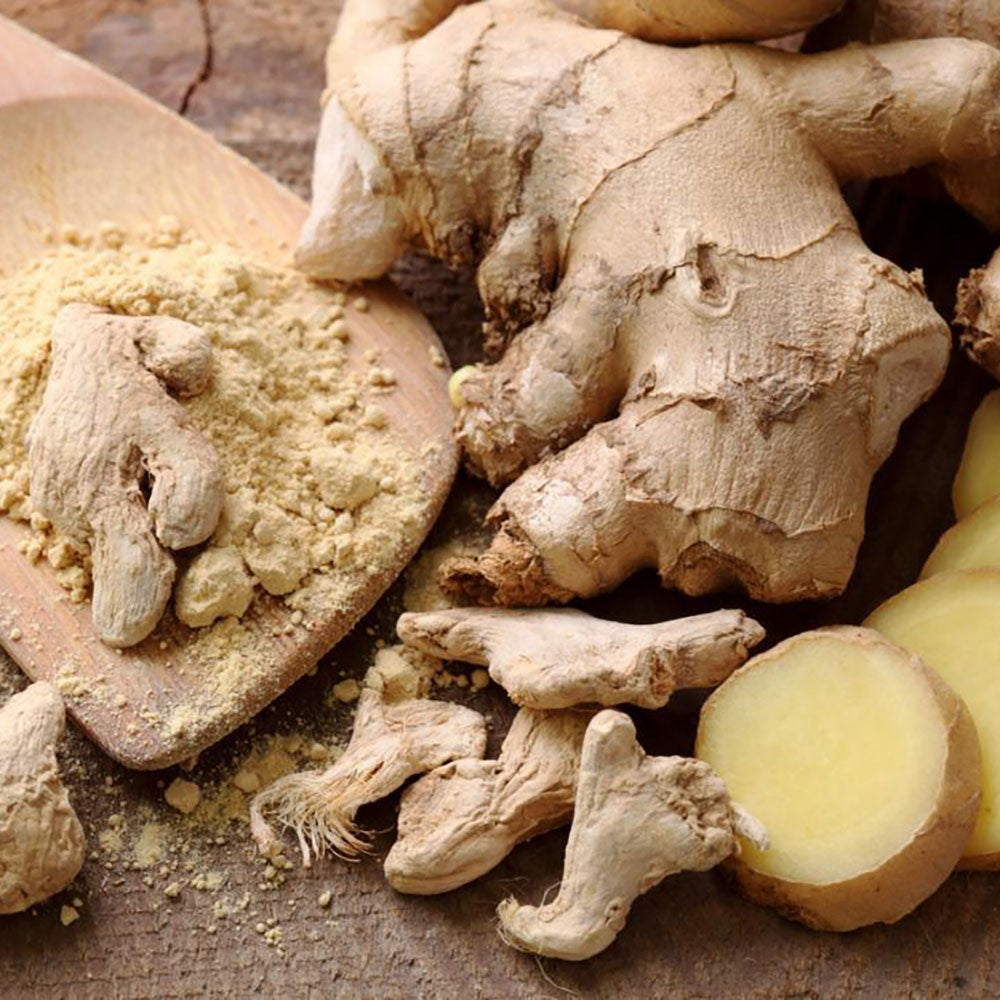Why is Ginger Good for you

Why is ginger good for you?
People have used ginger in cooking and medicine since ancient times. It is a popular home remedy for nausea, stomach pain, and other health issues.
Antioxidants and other nutrients in ginger may help prevent or treat arthritis, inflammation, and various types of infection. Researchers have also studied its potential to reduce the risk of diabetes, cancer, and other health problems.Benefits
Ginger may have anti-inflammatory, antibacterial, antiviral, and other healthful properties. Below are some of the possible medicinal uses of ginger.
Reducing gas and improving digestion
Several studies have investigated ginger’s effects on the gasses that form in the intestinal tract during digestion.
Some research indicates that enzymes in ginger can help the body break up and expel this gas, providing relief from any discomfort.
Ginger also appears to have beneficial effects on the enzymes trypsin and pancreatic lipase, which are important for digestion.
In addition, ginger may help increase movement through the digestive tract, suggesting that it may relieve or prevent constipation.
Relieving nausea
Some research indicates that ginger can help alleviate morning sickness and relieve nausea following cancer treatment.
One small study from 2010 examined the effects of ginger root powder supplements on nausea in 60 children and young adults who underwent chemotherapy. The analysis showed that the supplement led to reduced nausea in most of the people who took it.
Authors of a 2011 review of studies arrived at similar conclusions. They reported that taking a divided daily dosage of 1,500 milligrams (mg) of ginger extract helped alleviate symptoms of nausea.
They also called for further studies in humans to fully understand the effects of ginger on nausea and other gastrointestinal issues.
Easing a cold or the flu
Many people use ginger to help recover from a cold or the flu. However, the evidence supporting this remedy is mostly anecdotal.
In 2013, researchers studied the effects of fresh and dried ginger on one respiratory virus in human cells.
The results indicated that fresh ginger may help protect the respiratory system, while dried ginger did not have the same impact.
Also in 2013, a small study set out to investigate the popularity of herbal medicine as a cold or flu treatment.
After polling 300 pharmacy customers in two different locations, the researchers determined that 69% of those polled used herbal medicine and that most of this group found it effective.
However, while ginger was among the most popular ingredients in these remedies, some of the participants may not have used it.
Relieving pain
Researchers behind a small study, which included 74 volunteers, found that a daily dosage of 2 grams (g) of raw or heated ginger reduced exercise-induced muscle pain by about 25%.
Meanwhile, a 2016 review of studies concluded that ginger may help reduce dysmenorrhea — pain right before or during menstruation. However, the authors acknowledge that the included studies were often small or of poor quality.
Reducing inflammation
One group of researchers concluded that taking ginger by mouth is “modestly efficacious and reasonably safe” for treating inflammation caused by osteoarthritis.
However, they noted that the studies included in their meta-analysis were small and may not represent the general population.
Meanwhile, a 2017 review of 16 clinical trials determined that the phytochemical properties in ginger may combat inflammation. These authors also called for further research into the most effective dosages and types of ginger extract.
Supporting cardiovascular health
There is some evidence that ginger extract may help with cardiovascular disease.
For example, one review found that a dosage of 5 g or more can cause significant, beneficial antiplatelet activity.
The authors acknowledge that many investigations included in their analysis did not involve human participants or that participant numbers were too small to ensure reliable results.
However, they suggest that, with further research, ginger could prove to be a safe form of treatment for cardiovascular disease.
Meanwhile, one small study found that ginger extract helped reduce the occurrence of heart abnormalities among rats with diabetes. The authors noted that this reduction may stem, in part, from the antioxidant properties of the extract.
Lowering cancer risk
Ginger does not provide protein or other nutrients, but it is an excellent source of antioxidants. Studies have shown that, for this reason, ginger can reduce various types of oxidative stress.
Oxidative stress happens when too many free radicals build up in the body. Free radicals are toxic substances produced by metabolism and other factors.
The body needs to eliminate free radicals to prevent them from causing cellular damage that can lead to a range of diseases, including cancer. Dietary antioxidants help the body get rid of free radicals.
In a 2013 trial, researchers gave 20 participants either 2 g of ginger or a placebo for 28 days. The participants all had a high risk of developing colorectal cancer.
Biopsies showed that the participants who had consumed the ginger had fewer negative changes in healthy colon tissue. This group also had reduced cellular proliferation. The findings indicate that ginger could play a role in preventing colorectal cancer.
Nutrition
Ginger is a good source of antioxidants, but it does not provide many vitamins, minerals, or calories.
According to the United States Department of Agriculture, 2 teaspoons of ginger provide only 4 calories. This quantity does not provide a significant amount of any nutrient.
Risks
The Food and Drug Administration (FDA) consider ginger to be safe to include in the diet, but they do not guarantee or regulate its use as a medicine or supplement.
Researchers have not investigated many of the compounds in ginger. Also, scientific evidence does not support some claims about ginger’s healing qualities.
Before adding more ginger to the diet or taking a ginger supplement, consult a healthcare provider. A supplement may interact with medications or cause other health complications.
Ginger supplements and other ginger products are available for purchase online.
Takeaway
Some research indicates that ginger may improve digestive health, reduce inflammation, and relieve pain, among other benefits.
However, studies often use high dosages of extracts — a person may not experience positive health effects from simply adding ginger to their diet.
Also, studies investigating the health benefits of ginger have often been small or inconclusive. Fully understanding the effects and safety of ginger supplements will require more research.
|
Posted on November 02 2020
